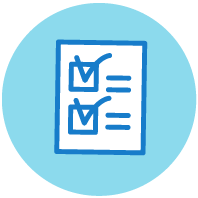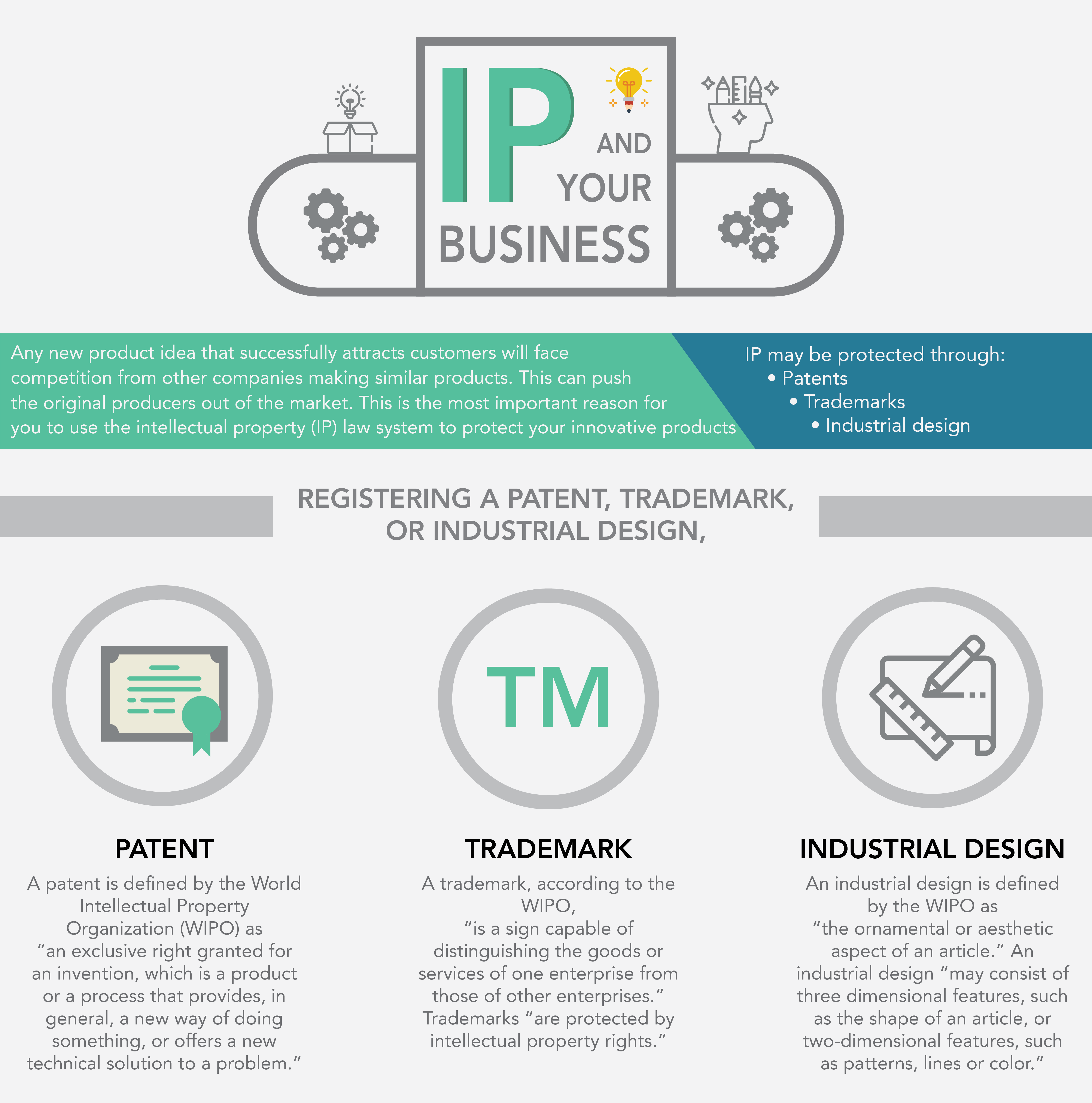Regulations and Policies
 As an entrepreneur, you need to have more knowledge of laws, regulations, and policies than the average person. All businesses need to obey state regulations and policies, which means accessing and keeping up to date with all laws that apply to your business.
As an entrepreneur, you need to have more knowledge of laws, regulations, and policies than the average person. All businesses need to obey state regulations and policies, which means accessing and keeping up to date with all laws that apply to your business.
In Indonesia, central and local government agencies are aware of the importance of technology and innovation for business development. In recent years, the government has developed policies and regulations that support businesses like yours to be more competitive and sustainable.
Some of the laws and regulations you will need to understand:
- Registering or incorporating your business
- Naming and trademarks
- Permits and licenses
- Taxes and collecting sales tax
- Export and import procedures and rules
- Currency exchange
- Human resource management guidelines
- Social media
- Workplace health and safety and sanitation rules
- Employee training and hiring legislation
- Regulations for employees
- Workplace health and safety
- Industry- or sector-specific policies
- Local or city practices
- Other topics, depending on your situation
Your local business association will have specific information on laws, regulations, and policies for your local business sector. Take the time to carefully research and plan any new enterprise in compliance with all the laws and regulations that might apply to your business. The decisions you make early on can set you up for success, but mistakes or oversights could create serious problems later.
Laws, regulations, and policies can change. You need to stay current with those changes to maintain a viable business. A business association, sector specific publications, or a good internet search can help you and your enterprise stay in compliance and stay in business.
Government Regulations and Policies
 Central Government
Central Government
The Ministry of Cooperation and SMEs provides information services for new entrepreneurs. The Ministry also provides information on the permits required for MSMEs.
To start a company in Indonesia, you will need to initially register your business by obtaining a business license. You will need to start on this process well before you plan to open your company, since it may consume more time than expected to finish all of the legal procedures. In Indonesia, the process of registering a company can take about three months.
New businesses are required to obtain a certificate of incorporation.
In June 2018 the Indonesian government announced it would cut SMEs’ income tax to 0.5%.
Local Government
Various provinces, cities, districts, and villages are launching initiatives to help MSMEs in Indonesia.
The Indonesian government’s Badan Pusat Statistik provides a Human Development Index by Province, 2010-2017 (New Method).
A 2014 World Bank report provides some statistics breaking down the number of MSMEs in the top five provinces for MSMEs in Indonesia.
Local Resources
Aceh
- Inauguration of the Forum of Small and Medium Business Community (FOKUS UMKM) of Lhokseumawe City / North Aceh District, Aceh Province.
- There is an FAO project to support SMEs and the fisheries sector in Aceh
- The Ministry of Cooperatives has held SME expos in Aceh
Yogyakarta
- Yogyakarta has experienced rapid growth of start-up business in part due to the local circumstances
Papua
- PT Pertamina Marketing Operation Region VIII Maluku-Papua has provided a partnership fund of Rp 1.1 billion to support to Small and Medium Enterprises (SMEs) in Jayapura
Jakarta
- The Jakarta administration has issued a new gubernatorial regulation that allows entrepreneurs to use their residence as a place of business No.30 2018. In 1972, Jakarta Administration released a gubernatorial regulation regarding to the restriction to build a business using their residents. Also explained in No. Bd. 3/24/19/1972, building a business in residential can impact society and environment. There are few business which allowed in residence area such as community services (foundations, communities) or general practitioner (Clinic, dentist or veterinarian)
- Three tips for starting a small business in Jakarta here. According to the new gubernatorial regulations (No.30 2018, article 3) about the classification of small businesses, there are 3 terms and condition to starting a new “house businesses”
- UMK (small develop business) with entity or non- entity/ personal, located in certain area and formed by the local governor in which business
- UMK in which having business in stated location or navigate around :
- Business location have a permanent building/ semi permanent with width
- The location for navigate business operating in which area set by local governor law.
- UMK in which as an additional business for supporting residence activity, width should be 30m2 or 20% from the entire residence.
Bali
- Binus University has offered a short program in business export to student travelers looking to explore Bali. The program is organized in cooperation with Udayana University and comprises of business classes, visits to Bali SMEs, and cultural exploration of Jakarta and Bali
- The program aimed to develop an export business plan for SMEs in Bali with course credits earned. The program required students to work with Bali Tangi (spa products), Burni Ayu Hotel and Wisnu Karya Putra International (timber products)
Banten
- In March 2018 President Joko Widodo (Jokowi) inaugurated the operation of Micro Wakaf Bank program in An Nawawi Tanara Islamic Boarding School of Serang District, Banten Province, to assist the funding of micro, small, and medium enterprises
West Sumatra
- Google Indonesia, in collaboration with the Indonesian Ministry of Foreign Affairs and the Provincial Government of West Sumatra, has indicated that it would explore the possible development of digital operations in West Sumatra to help develop MSMEs
- Over 100 MSME players in Padang have received training from the government in order to become more competitive globally through business matching schemes with modern chain stores, supermarkets, and food gift shops
Intellectual Property

 Registering a Patent in Indonesia
Registering a Patent in Indonesia
The Direcktorat Jenderal Hak Kekayaan Intelecktual is the government department responsible for granting patent rights in Indonesia.
In Indonesia patent protection is obtainable by way of either entering the national phase of a Patent Cooperation Treaty (PCT) application or filing a direct national application.
The Directorate General of Intellectual Property Rights (DGIP) of Indonesia maintains an integrated Intellectual Property Data and Information Service System (LADI HKI) for Indonesian patents, industrial designs and trademarks.
IP-Coaster is an online resource that facilitates IP protection.
Online Database for Indonesian Patents Search
Registering a Trademark in Indonesia
According to cekindo.com, there are few steps to register Indonesian Trademark:
- Find an Intellectual Property Right Consultant. Foreign applicants require a local IP consultant with a signed Power of Attorney and Declaration of Entitlement in order to file for the processing of their trademark registration application
- Have a research on Indonesia trademark search. The purpose is to find the right trade mark that your company need accordance to Trademark Act No 15 of 2001. Also to make sure that your company trademark does not have any conflict with religious or public order against moral values. You need to make sure that another entity has not register theirs similar with your proposed trademark
- Finally, you need to complete the registration process. To increase the approval chances of your trademark application, be thorough in completing the three levels of registration process. The process involves a formal examination, substantive review, and finally, the announcement
The Direcktorat Jenderal Hak Kekayaan Intelecktual is the government department responsible for granting trademark rights in Indonesia.
Online Database for Indonesian Trademarks Search
The World Intellectual Property Organization (WIPO) holds a database of Indonesian trademarks.
Legal basis for Trademarks in Indonesia:
Trademarks are used in goods traded by a person or persons jointly or by a legal entity to distinguish other goods.
Act Number 19 of 1992 on Trademark (State Gazette of the Republic of Indonesia Year 1992 Number 81)
Act Number 14 Year 1997 concerning Amendment of Act Number 19 of 1992 on Trademark. (State Gazette of the Republic of Indonesia Year 1997 Number 31)
Act Number 15 Year 2001 regarding Trademark (State Gazette of the Republic of Indonesia Year 2001 Number 110)
A related PDF documents from the WIPO on Indonesia’s trademark law can be found here.
Registering an Industrial Design in Indonesia
The Direcktorat Jenderal Hak Kekayaan Intelecktual is the government department responsible for granting industrial design rights in Indonesia.
An Indonesian industrial design application should contain:
- a request for design registration
- designer’s and applicant’s information
- representation and description of the design
- priority data, if priority is claimed
Online Database for Indonesian Industrial Designs Search
Regulations on Intellectual Property
The Directorate General of Intellectual Property (DGIP) is the government department responsible for overseeing intellectual property administration and application in Indonesia.
IP Legal Base in Indonesia
The WIPO and the ASEAN Intellectual Property Portal sites provide listings of relevant IP legislation in Indonesia.
- Law of the Republic of Indonesia on Patents
- Law of the Republic of Indonesia on Trade Marks and Geographical Indications
- Law regarding Industrial Designs
- Law regarding Layout Designs of Integrated Circuits
- Law of the Republic of Indonesia on Copyright
- Law of the Republic of Indonesia on Plant Variety Protection
Contact Information on Intellectual Property
Directorate General of Intellectual Property
H.R. Rasuna Said Street, Kav. 8-9 Kuningan - South Jakarta 12940
Phone & Fax: (62 21) 5790 5619 (secretary);
(62 21) 5790 5611 (patents);
(62 21) 5790 5613 (trademarks)
Email: dopatent@dgip.go.id; domark@dgip.go.id www.dgip.go.id
Examples of IP Protection in Indonesia
If you are an inventor, you need to understand IP laws and the laws around technology transfer and patents. How have other entrepreneurs protected their IP? Read about these real IP cases.
Es Teller 77, an Indonesian fast-food chain that started out as a kiosk outside a shopping mall in Jakarta, is an example of an Indonesia firm that successfully protected its trademark.
Another example about IP Protection is “Ayam Goreng Ny. Suharti” restaurant:
In an article of TEMPO magazine, Suharti (the founder of the restaurant) mentioned about SUHARTI restaurant got different pictures (Traditional chicken and suharti’s portrait) on several location. She explained that her husband Sachlan and her she build the restaurant over 30 years ago using the traditional chicken picture. There were a personal issue between her and Sachlan which linked to another woman in their marriages. Sachlan succeeded to acquire all of the Suharti restaurant (which his name registered for the brand). Suharti lost all the business she had, years later she tried to build the restaurant she owned with the same name “Ayam Goreng Ny. Suharti”. However, this time she is using her own picture to tell public that she is the real owner of the restaurant.
Until now, the trademark for both business are same, however the logo for each of the owner are different (traditional chicken belongs to the former husband, Suharti portrait belongs to the former wife).
The Communication and Information Ministry is providing free internet domain names to SMEs to help SMEs grow.
Indonesian Business building new IP:
Indonesian local business commonly used LCC (perseroan terbatas) as their entity. To get Indonesian PT it recquires:
- One Indonesian director, two local shareholders, and one commissioner (can be a non- resident individual). The role and responsibility of commissioner includes:
- Supervising the company or business
- Examine report and approve the budget plan submitted by board or directors
- Medium Size entity with share capital between US$ 37,435 to US$748,740
- A large company that requires a share capital above US$748,740